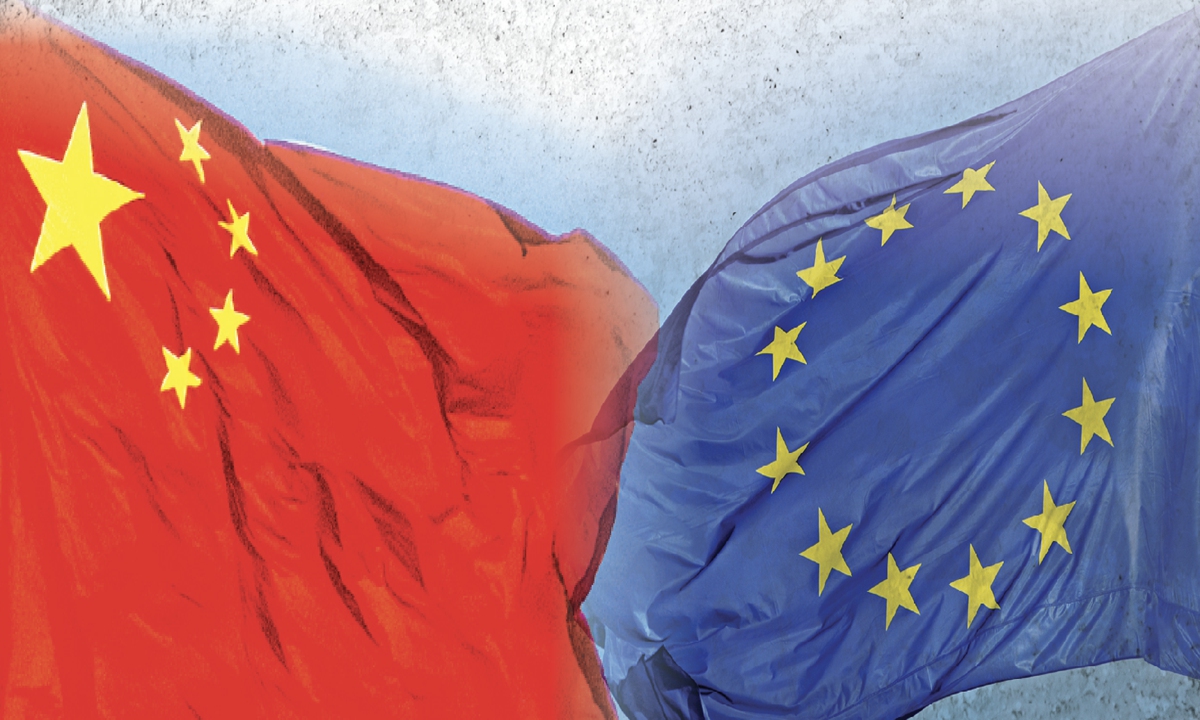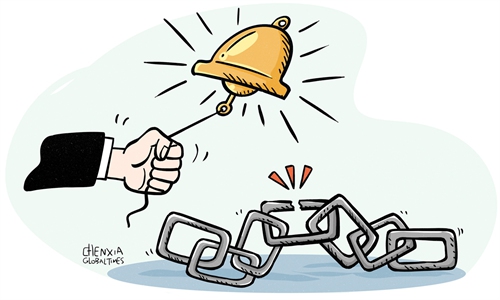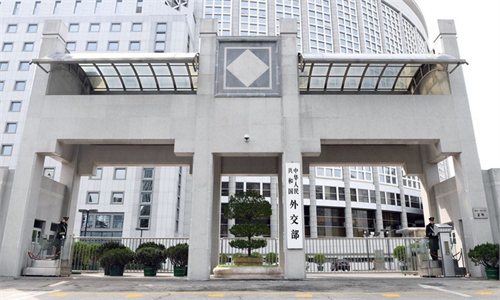
Photo: GT
US House Speaker Nancy Pelosi ignored repeated warnings from the Chinese side and visited the island of Taiwan. It was a trip of provocation and flames-fanning, exposing to the world the US ill-intentioned attempts of changing the status quo of the Taiwan Straits and hallowing the one-China principle.
The G7 and EU did not have the courage to condemn the US, but rather colluded with it to issue a statement which sought to shift the blame for escalating the cross-Straits tensions on China and put "applicable conditions" on the one-China principle. All these words have exposed the arrogance and hypocrisy of Western countries.
In recent years, some European countries have been constantly changing positions on the Taiwan question. It is especially true when it comes to certain anti-China politicians. On the one hand, those political elites have been influenced, shaped and manipulated by the US for a long period of time. The Ukraine crisis since the beginning of this year has made Europe "vulnerable" in an unprecedented way, which has also made it easier for the US to "manipulate Europe through Russia."
It has become politically correct for most European countries to follow the suit of the US and the anti-China political virus has quickly spread to Europe. Some European politicians have since stepped up efforts in playing the Taiwan card to chase their own interests, attract public attention and gamble for votes.
On the other hand, the mainstream media and scholars in Europe also bear the responsibility for such tactics of manipulating the Taiwan question. Some so-called experts on China and some journalists always play the role of delivering the US stance and observing China through a negative filter. No matter whether it is a major issue or a small one, Europe would speak or act in favor of the US while opposing to China whenever it could. In terms of the historical context of the Taiwan question and the fact that the Chinese mainland and the island of Taiwan belong to one China, some people pretend they don't understand or deliberately distort it out of their ideological bias toward China. The political sphere colludes with public opinion and media, which fueled the negative remarks and actions over the Taiwan question.
From a boarder and deeper perspective, China-Europe relations have entered a historical period of restructuring, and some setbacks are becoming unavoidable. The political consensus between the two sides on the Taiwan question has been affected as well. The essential problem is that some European countries have severe cognitive distortion. The three definitions of China - a partner for cooperation and negotiation, an economic competitor and a systemic rival - by the EU contradict with each other.
The world is changing in an unprecedented way. But some European countries have not woken up from "the old dream" about a Western-led world and do not have an objective and rational understanding of China. The EU is walking away from its self-proclaimed strategic independence and is being strategically hijacked by the US hegemony.
There are certain groups of people whose mindsets still remain in the last century even though their bodies moved into the 21st century. The spread of information in Western society is not as transparent and smooth as it claims. In essence, it is a one-way output dominated by Western media and elite groups.
Secessionist Democratic Progressive Party authorities have been brainwashing the people in Taiwan with "Taiwan independence" and "de-Sinicization" ideas. In Western society, some people are also brainwashed and thus have a negative understanding about China. To a larger extent, the West has consciously rejected the real situation in China, and has selected, amplified and transmitted negative information about China to their own people. Even positive information would be distorted. Over time, the image of China in the eyes of the European people has been demonized, which then disturbs normal exchanges and cooperation between the two sides. Once a negative impression is formed, people will intuitively interpret all policies of China from a negative angle.
The most important means to expose lies and fallacies and eliminate misunderstandings and prejudices is to strengthen communication. For years, we have strived to introduce a real China to France and to European society. We fight for our own interests, set things right, make friends and enhance mutual understanding. And we received a lot of support and encouragement. On the Taiwan question, we explain it from the angles of historical context and the international law. We reveal that the history of the island as part of China is much longer than the histories of many European countries, including France. And we use the example of Corsica as a territorial collectivity of France to guide the public's understanding of the Taiwan question.
This is information that the French people do not access from their own media channels. A netizen once left a message on the social media account of the Chinese Embassy in France, saying that he had finally understood what Taiwan means to China, which is just like what Corsica means to France and Catalonia to Spain. We will continue to do this work and actively guide the French and European people to "rethink" on China-related issues.
The People's Republic of China is the only legitimate government of China. This is the basic norm governing international relations adopted by the resolution 2758 of the UN General Assembly of 1971, and it is also the official position of European countries with diplomatic relations with China, including France. On Pelosi's visit, some French political figures and scholars such as Jean-Luc Mélenchon who leads La France Insoumise (a left-wing political party in France) voiced support for the one-China principle, saying that Taiwan is part of China and condemning Pelosi's provocative and dangerous move.
At the same time, some anti-China forces and individuals in certain European countries are also hyping on the Taiwan question, mulling on challenging China's red line, which deserves our vigilance. The one-China principle is the political foundation of China-EU relations and a red line and bottom line that can't be crossed.
We call on European side not to underestimate the firm will and strong ability of the Chinese government and people to safeguard national sovereignty and territorial integrity, and not to blindly follow the US in playing with fire on the Taiwan question. Instead, they should take concrete actions and stand on the right side of history.
As the world's two major powers, markets and civilizations, China and Europe share responsibilities in boosting peace and world development, and both should inject stability for the world amid the turbulences. China-France relations are one of the most stable major-power relations in the world today. China, France and Europe have a thousand reasons to improve relations, but no reason to damage their ties.
We attach importance to the China-France and China-Europe relations like we always do. Only by staying true to our original aspiration and making an independent and sober judgment on our own interests, can China-France and China- Europe relations continue to develop and correct the course when needed.
The author is China's Ambassador to France. opinion@globaltimes.com.cn


